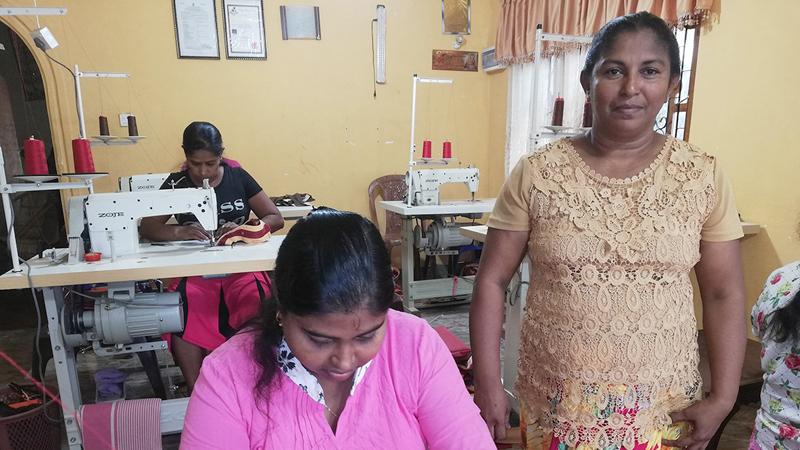
The Women’s Chamber of Industry and Commerce (WCIC) in its 2022 Budget proposals calls upon lawmakers to allocate a specific quota for women owned businesses where applicable when entering into bilateral trade agreements with other countries, where specific quotas are allocated to the country.
The chamber requests that a specific quota should be given to women-owned businesses when other business opportunities to supply goods and services arise on a national level which should be monitored and published periodically to ensure implementation and control.
WCIC proposes formulating a national policy to set up a separate bank for SMEs providing funding with no collaterals, evaluating the projects on its merits, good monitoring of the SMEs and having an advisory panel to advise the SMEs.
The national policy could also look into means of setting up a separate fund with counter funding facilities from the IMF and ADB, the chamber stated, adding that steps should be taken to encourage funding for women entrepreneurs by providing a tax exemption or concessionary tax rate on the income earned by Venture Capitals by funding women-owned businesses.
On maternity leave benefits, WMIC suggests that as the majority of the employed women of Sri Lanka are at the lower skill levels and the high skill level women tend to leave for child care and elderly care to consider NHRDC Report (2017) recommendations such as streamlining maternity leave for women in all industries.
At present the cost of public sector maternity leave is borne by the government whereas the private sector is by the employer. This hinders the private sector to hire more women within the age of 20-40.
The Government should have an incentive scheme to give a benefit to the cost of maternity leave borne by the private sector. Some methods to consider could be;
• Reimbursement of the expense by the government.
• Double tax deduction for the employee benefit cost to the employer
• Setting up an insurance fund to share the cost of maternity benefits between the Govt and employers
The chamber proposes a double deduction for individuals who invest in regulated high quality creche and elders home facilities.
Double deduction on salaries of differently abled individuals, double deduction of Salaries for maternity benefit leave, setting up policies / standards for investing & training individuals for creches and elders homes and encouraging the private sector to invest in it. WCIC proposes a budget allocation to set up and provide certification and monitoring of creches.
The lack of these facilities hinder the participation of women in economic activity such as business and employment, the chamber noted.
It also suggests that labour laws include paternity leave for both public and private sector employees for a limited time. A labour policy to encourage home working and encouraging more women to participate in economic activities Home / Flexible hours. (Flexible hours per week, women with young Children to be allowed to work flexible hours)
Implement a scheme for the returnees from the Gulf and other countries to be absorbed into the local economy through a structured program. Formalise a scheme (similar to foreign employment) for Sri Lankans to hire domestic help which will also ensure proper wages and facilities to domestic workers. This could be formalised subsequent to a certified training program for domestic help and job recognition.
Budget allocation for funding and resources for National level coaching and mentoring programs for Women entrepreneurs including Risk management, and Digital literacy.
The Women’s Chamber proposes a national policy to boost capacity and leadership by allocating a quota for women leaders on Boards and C-Suite leadership in the Corporate sector.
It proposes preparing a National Women Entrepreneur database with the Ministry of Women Affairs to create a structured process to capture women participation.
Policies to allow a percentage of government contracts for bidding by women owned businesses only. The government to monitor the process and endeavour to increase it by 1% annually.
Increasing the % of women entrepreneurs is a focus area of the government.
In India the Government reserves designated items for exclusive purchase from suppliers in the SME sector which includes several suppliers that work through women’s development organisations in rural areas. This method is also applied in the US to assist women owned small businesses to secure federal contracts.
The chamber proposes an allocation of a mandatory percentage of public procurement/contracts to women owned small businesses in specified areas of business such as supply of food and cleaning.
